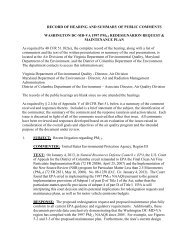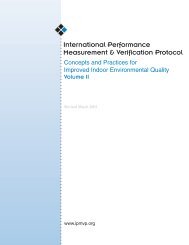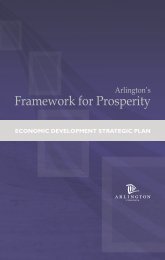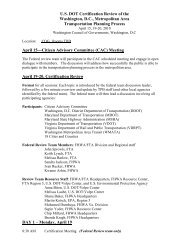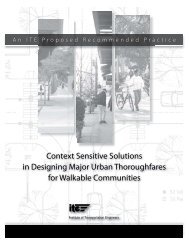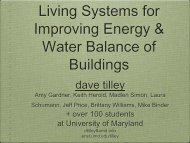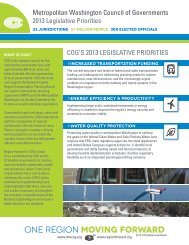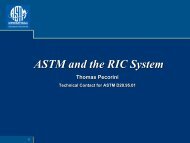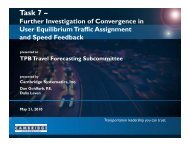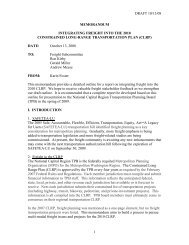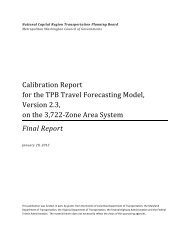PTI Local Government Energy Assurance Guidelines - Metropolitan ...
PTI Local Government Energy Assurance Guidelines - Metropolitan ...
PTI Local Government Energy Assurance Guidelines - Metropolitan ...
Create successful ePaper yourself
Turn your PDF publications into a flip-book with our unique Google optimized e-Paper software.
Key Questions<br />
…in Knowing Emergency Authorities<br />
There are many legal authority questions a local government should identify and answer. The<br />
questions, and their answers, will vary based on the jurisdiction and the type of energy emergency.<br />
What follows is a list of questions that serve as a starting point. Depending on the extent and nature<br />
of the local EAP, some of these questions might be relevant and others might assist in identifying<br />
other germane questions.<br />
1. In an energy emergency, who is in charge of response—the elected official, the local body or<br />
governing board, or a previously appointed administrative official?<br />
2. What legal contracts and unofficial arrangements with energy sector service providers must<br />
be followed during an energy emergency, and should these contracts be updated as part of the<br />
EAP?<br />
3. Is there in place a local incident command system that is recognized by the Federal government<br />
as being consistent with the NIMS, thus making the locality eligible for Federal emergency<br />
funding?<br />
4. Who has the authority to declare an energy emergency, and what laws and actions relevant to<br />
energy supply are triggered when that person acts?<br />
5. Has the locality reviewed its police authority to protect critical infrastructure (buildings, water<br />
processing facilities, communications facilities and towers, tunnels, utility transmission lines<br />
and distribution stations, bridges, roads, etc.), and if so, how does this authority work?<br />
6. Are there any emergency legal restrictions in any unique areas (utility easements, waterways,<br />
wetlands, private roads, private land, etc.) that should be considered during an energy<br />
emergency?<br />
7. How do Freedom of Information and Open Meeting laws apply to energy emergencies and<br />
energy planning?<br />
8. What limits are there on boards, city councils, or executive officials when it comes to making<br />
energy decisions during an emergency?<br />
9. What triggers special contracting authority—for a mutual aid agreement for example— in an<br />
energy emergency? This can be necessary to ensure that response/recovery resources from<br />
neighboring jurisdictions can be acquired and compensated as required.<br />
10. Has the extent of government liability during an energy emergency been fully determined?<br />
11. Do local planners know, and have they assembled in one place, all applicable State and Federal<br />
laws that come into play during an energy emergency?<br />
12. Is the local government home rule?<br />
<strong>Local</strong> <strong>Government</strong> <strong>Energy</strong> <strong>Assurance</strong> <strong>Guidelines</strong> – Version 2.0 | 39



